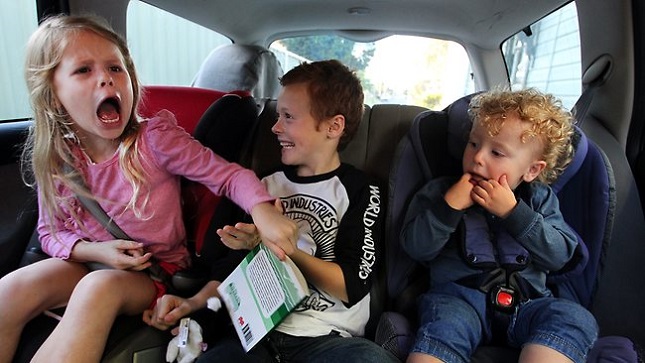Driving with children can be a huge distraction while on the road. There are certain habits you can form while driving with children. These habits may seem small and insignificant, but they can greatly improve your family’s safety on the open road.
1. Make them wait patiently for your help and attention
Even though patience is a virtue that children have a hard time to grasp, but it should be taught, especially when driving with children. When they are asking you for something or to look at them, make sure you communicate to them that it is important for you to keep your attention on the road, and that you will help them when the car is stopped at the destination.
2. Keep the toys tethered
Toys can be a great distraction for your children in your vehicle; however, they need to be tied to something so your kids cannot throw them into your line of vision. Toys flying through the air can not only injure someone, but they are also a huge distraction when driving with children.
3. Pullover
When the children get too loud or rambunctious, it is always more safe to pull over to a safe area to address the problems. Driving while addressing the issues of your children, make sure that you are not in motion and in danger or striking another vehicle.
4. Stay off the phone
This may seem obvious, but thousands of car accidents happen every year due to cell phone usage. When you need to use a GPS, set your location and mount it to your car’s dash, and only adjust your phone when you are safely pulled off the road.
Sometimes driving with children can become a huge distraction on the road; however, with practice and persistence, children can learn to be well-behaved in the car. The point of travel is to get from point A to point B in a timely manner, but it is important to keep your family safe while on the way to your destination.

The information in this article was obtained from various sources. This content is offered for educational purposes only and does not represent contractual agreements, nor is it intended to replace manuals or instructions provided by the manufacturer or the advice of a qualified professional. The definitions, terms and coverage in a given policy may be different than those suggested here and the language contained therein will govern such policy. No warranty or appropriateness for a specific purpose is expressed or implied.


